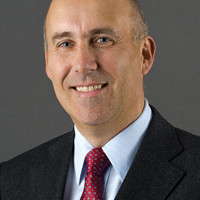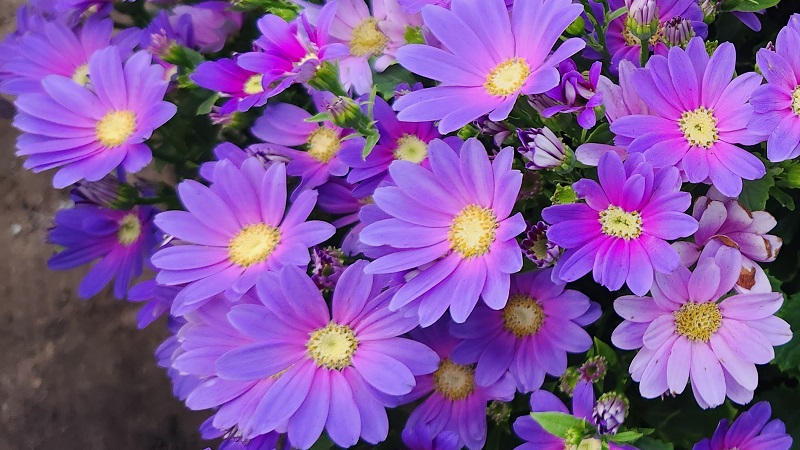Big Get Bigger In Breeding

The cycle began in 2007 with Syngenta purchasing Fischer just a few months after purchasing growing media supplier Fafard. One year later, Syngenta purchased Goldsmith, after already having a breeding and distribution relationship on the vegetative side. The latest piece of the puzzle was the Yoder lines of mums and asters, filling out the product assortment and technical support that comes with it. Yoder launched a new company, Aris Horticultural Services, with three business units: Green Leaf Plants for young plants; Keepsake Plants for finished potted plants; and a brokerage division.
During this same time period, Ball Horticultural Co. strengthened its position in perennials by purchasing Darwin Plants and Kieft Seeds, both of which are retaining their identities within Ball. But the announcement that really made people take notice was Selecta Klemm entering into an exclusive distribution arrangement with Ball on the unrooted cuttings side in North America. While all cuttings will be sold through Ball, distribution will be open at the rooted stage with root-and-sell growers working with a variety of brokers.
On the global seed side during this time period, Japanese-based Takii purchased Global Flowers in Denmark and Sahin in Holland. Right after Pack Trials, Bodger sold its key seed lines to Benary in Germany and the vegetative lines were taken over by Bodger’s long-time sales and marketing director Steve Jones, who launched a new business, Green Fuse Botanicals. Owner Kim Bodger said it was important to him that the assets transfer to independent companies.
Breeders and brokers competing in the supply chain are most directly affected by these shifts, but for the most part, growers don’t seem to be as concerned and feel their needs will continue to be met. Some say it will take several years before we see the results because the companies are still in the integration phase. Peter Darrow of independent young plant producer Jolly Farmer Products in Canada says he has mixed feelings about breeder consolidation.
“For some breeders, the consolidation will benefit the industry,” he says. “For instance, we feel Benary’s purchase of Bodger’s genetics will bring a higher level of quality and predictability to those genetics. Likewise with Syngenta’s purchase of Yoder’s mums. Some of the other consolidation, however, while it is unfortunate to see a family business sold to “big business,” is a simple reality in today’s business environment.”
Strategic Visions
Based in Basel, Switzerland, Syngenta is a world-leading agribusiness company focused on crop protection and commercial seed. The company has created a lawn and garden pillar within the organization that spans flower, turf and landscaping and the golf industry. Jeff Cox, who came from Syngenta’s corn and soybeans division, is now global head of lawn and garden.
“Our vision is a customer-centric approach combining genetics with media and controls to deliver better results for the grower and ultimately the consumer,” Cox says. “We want to help growers get more out of the products we already have while also investing in innovation. Growers are asking about logistics, making things work. They want blueprints, watering regimes, controls, the best mix to deliver results every time.”
Joel Goldsmith of Goldsmith Seeds adds, “It’s not just a seed or a cutting but how to grow and control growth of the plant with less inputs. Large retailers have marketing programs for specific plants on specific dates. If you get dark weather, what do you do to catch up and make that ship date? Now everything is programmed.”
With Syngenta being such a large global company, observers have been delightfully surprised to see Syngenta embrace Fischer’s policies of completely open distribution and move all the seed operations to Goldsmith in Gilroy. Syngenta’s distribution business, Syngenta Horticultural Services, will be run as a separate business, Cox says. “The distribution business needs to run as a distribution business,” he says. “We need to set it aside from the genetics business, take an unbiased approach and compete on distribution successfully without muddling it up with what makes the genetics and plant health companies successful. Each has a role to play. They have to add value in, not take value out.”
Ball still has completely closed distribution for its Ball FloraPlant vegetative lines, many of which are similar to Selecta’s lines. There is overlap in key categories, but Selecta brings an enviable position in its extensive MiniFamous calibrachoas and has a strong research and development program.
Ball’s Scott Roskuszka, who worked on the transition with Selecta, says only a few rooting stations were discontinued–Possum Run Greenhouses and Shreve Farm in Ohio and First Step Greenhouses in California. “We were oversupplied in Ohio,” he says. “We’re not opposed to adding more, but it’s got to make sense for our root-and-sells and our partners. We need to make sure each region is adequately supplied. If you look, a lot of root-and-sells are regionally focused. Regional niches are prevalent in all parts of the country among all grower segments.”
Selecta chose to partner with Ball for its strength in distribution and service. When asked his views on global consolidation of breeding and distribution channels, Per Klemm of Selecta says, “Recent consolidation has created, as it always does, a different chance and risk profile than we had before. It is up to each single participant in the market to enhance those chances and minimize the risks.”
Klemm says he would not like to see consolidation get to the point where the industry is served by oligopolies or a monopolistic Microsoft situation. “Competition always has and always will be a main driver of innovation and customer satisfaction,” he says.









